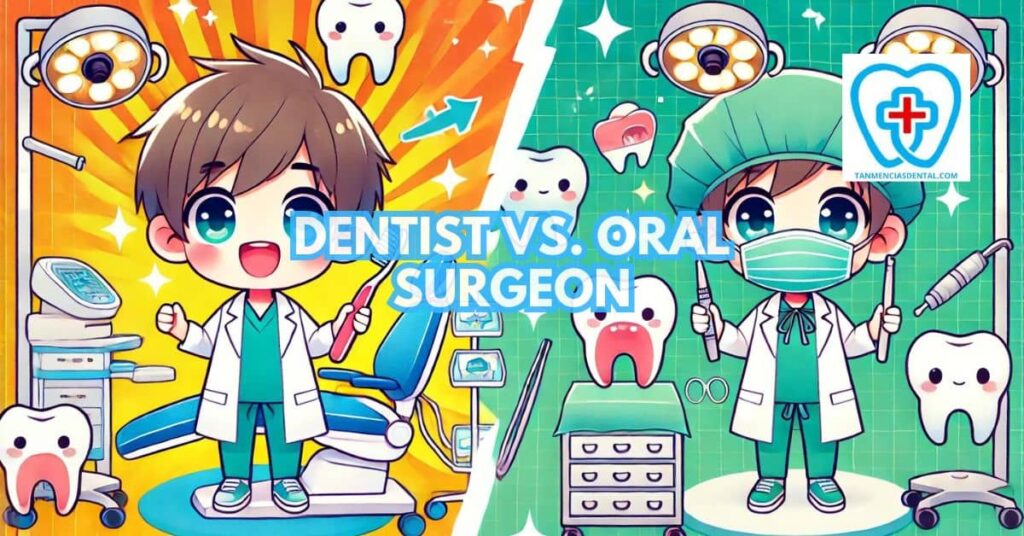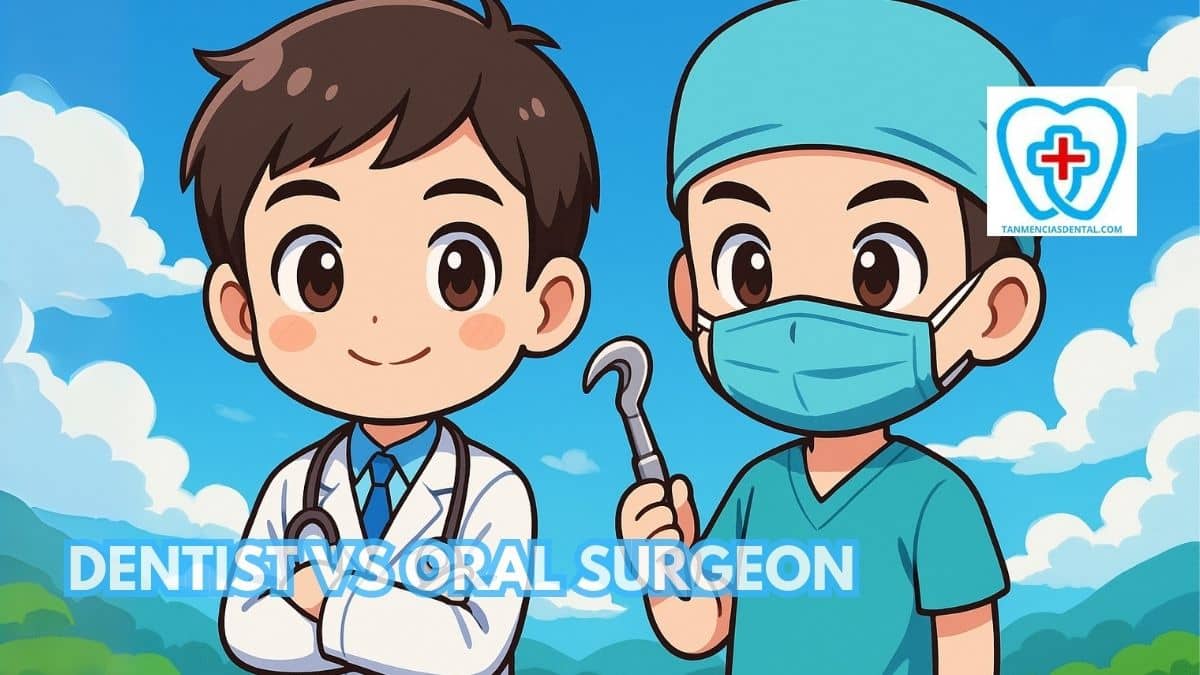Understanding the difference between a dentist and an oral surgeon helps people choose the right provider for their needs.
Dentists focus on preventive care and everyday treatments that most patients need throughout life.
Oral surgeons treat conditions that require more complex surgical procedures and specialized skills.
Knowing which provider handles which type of care prevents confusion and delays.
We’ll explain the unique roles of each professional and why that knowledge matters for your oral health.
1. Different Education And Specialized Surgical Training
Dentists in the Philippines complete a six-year Doctor of Dental Medicine program after graduating from high school.
During this time in dental school, they study subjects in dentistry such as oral anatomy, disease prevention, dental materials, and basic surgical techniques.
A dentist is a dental professional who mainly provides preventive care and common treatments like fillings, crowns, and gum care.
An oral and maxillofacial surgeon also begins with the same dental program but continues with four to six years of hospital residency after graduation.
This residency includes advanced training in anesthesia, trauma management, oral pathology, and corrective jaw surgery.
Such preparation allows an oral and maxillofacial surgeon to treat complex cases that general dentists are not equipped to manage.
Both dentists and oral surgeons are dental professionals, but their responsibilities differ because of the specialized skills gained during residency.
This difference ensures patients get the right treatment, whether they need routine dentistry or advanced surgical care.
🦷 Is Your Smile Worth It? Why Dental Care Is So Expensive
2. Routine Dental Care Vs Complex Oral Surgeries
Dentists provide the kind of care most people need regularly, including professional cleanings, dental exams, and cavity repair.
They also take care of gum health, perform cosmetic treatments like whitening, and handle minor issues such as simple tooth extractions.
Oral surgeons focus on more complex oral surgeries that require advanced training and specialized tools.
These include procedures such as jaw surgery, treatment of oral tumors, and managing severe injuries to the mouth or face.
One of the most common oral surgeries they perform is wisdom teeth extraction, especially when the teeth are impacted or cause pain.
Oral surgeons are also trained to carry out safe and effective wisdom teeth removal in cases where the teeth may damage nearby teeth or bone.
Their work requires surgical precision that goes beyond what most dentists are trained to provide.
Knowing the difference helps patients understand when routine care from a dentist is enough and when complex oral surgeries are the safer choice.
🦷 Does Salt Water Help With Gingivitis? The Salty Truth About Gum Relief
3. Primary Dental Care Provider Vs Surgical Specialist
The dentist is often the first professional a patient sees for tooth pain or preventive care.
After diagnosis, the dentist decides whether the issue can be treated in the office or needs surgical attention.
If the case is complex, the dentist refers the patient to an oral surgeon.
Oral surgeons act as specialists who handle only the surgical side of oral health.
This system ensures that patients always start with a general provider before moving to specialized care if needed.
🦷 Can You Drink Sparkling Water After Brushing Your Teeth?
4. Basic Procedures Vs Advanced Surgical Treatments
General dentists are trained to handle basic procedures such as fillings, crowns, and simple extractions that are part of routine care.
These are treatments that dentists can perform to keep teeth healthy, restore damaged areas, and stop small issues from turning into bigger problems.
They also help patients with preventive care, including regular checkups and advice on maintaining oral health.
Oral surgeons, on the other hand, focus on advanced surgical treatments like corrective jaw surgery, facial trauma repair, and dental implants.
These procedures often require specialized training and equipment that go beyond what dentists can perform in a regular clinic.
This clear separation of responsibilities ensures that patients receive safe, effective, and properly matched treatment for their needs.
🦷 Why Be a Dental Assistant? It’s More Than Just Smiles!

5. Knowing Roles Aids Timely And Proper Care
When patients understand what dentists and oral surgeons each provide, they make quicker and more informed decisions.
For example, a patient with a cavity knows a dentist can help, while someone with an impacted tooth recognizes that surgery may be required.
This knowledge prevents unnecessary appointments and reduces delays in care.
It also lowers anxiety because patients understand why a referral may be given.
Having clarity about roles supports better treatment outcomes overall.
🦷 How Smile Correction Can Transform Your Confidence and Appearance
6. Referral System From Dentists To Oral Surgeons
Dentists are trained to recognize when a patient’s condition is beyond their scope of practice.
In such cases, they provide a referral to an oral surgeon who has the right expertise.
This system benefits patients because it ensures they see the most qualified professional for complex conditions.
It also creates a safety net that keeps patients from receiving treatment that may not be effective.
A strong referral process promotes continuity and high-quality care.
🦷 Chewing Gum Instead of Brushing Teeth: Can Gum Really Save the Day?
7. Specialized Anesthesia And Pain Management
Oral surgeons in the Philippines receive advanced training in administering anesthesia as part of their hospital-based residency.
This training includes not only local anesthesia but also sedation and, in accredited hospital settings, general anesthesia for complex surgeries.
Dentists can perform local anesthesia safely in clinics, which is usually enough for simple procedures like fillings or minor extractions.
However, oral and maxillofacial surgeons are trained to manage higher levels of anesthesia for oral surgeries that require deeper pain control.
This difference is important because it ensures patients remain safe and comfortable during procedures that would otherwise be too painful under basic numbing.
Oral surgeons also gain experience in monitoring patients throughout surgery to minimize risks.
Knowing that these dental professionals have specific training in both surgery and anesthesia builds trust in their ability to handle difficult cases.
This added expertise makes them essential for procedures that go beyond routine dentistry.
🦷 Brushing Up on Prevention: Can Tooth Decay Be Reversed or Only Prevented?
8. Collaborative Approach For Comprehensive Oral Health
Dentists and oral surgeons often work together to address both everyday care and advanced needs.
A dentist might provide preventive care while monitoring for conditions that could require surgery.
When necessary, the oral surgeon steps in to treat more complex issues while the dentist continues ongoing care.
This teamwork ensures patients do not lose sight of their overall oral health.
Collaboration also helps patients receive treatment that is thorough and coordinated.
🦷 Why Brushing Your Teeth At Night Is More Important Than You Think
9. Impact On Treatment Success And Recovery
Assigning the right provider to the right treatment improves patient outcomes.
For instance, a surgical extraction done by an oral surgeon may reduce healing time compared to a difficult extraction attempted by a dentist.
Oral surgeons are also trained to manage complications that might arise during or after surgery.
This expertise lowers the risk of problems and supports smoother recovery.
Patients benefit from better results and more predictable healing when care is matched properly.
🦷 Orthodontic Treatment in Marikina
10. Patient Empowerment Through Role Awareness
Patients who understand the dentist vs. oral surgeon roles are better prepared to make decisions about their care.
They can ask more focused questions about treatment plans and expected outcomes.
This knowledge also reduces fear because patients know what to expect from each provider.
Being aware of these differences helps patients feel more in control of their health choices.
Informed patients tend to have greater trust in their providers and improved satisfaction with treatment.
🦷 Marikina City Dentists and Oral Care Experts
👨⚕️ Conclusion
Dentists and oral surgeons both play vital roles in oral health, but their focus areas differ.
Dentists provide everyday care such as exams, cleanings, and routine treatments.
Oral surgeons manage complex cases that require surgical training and advanced skill.
Recognizing these differences ensures patients receive care that is safe, effective, and appropriate for their needs.
With a clear understanding of roles, patients can seek timely treatment and support better recovery.
😊 Self-Promotion
Looking for trusted dental care in Marikina?
Visit Tan-Mencias Dental Clinic at 44 G. Del Pilar Street, Parang, Marikina City, where our team is ready to help you with your oral health needs.
You can call us at 0917-145-1074 if you have any questions or want to book an appointment.
We also welcome messages through our Facebook page or through our website’s contact form for your convenience.
Our friendly staff is always happy to assist you.
Let us help you keep your smile healthy and bright!
❔ FAQs
1. When should I see a dentist instead of an oral surgeon?
You should see a dentist for routine care like cleanings, fillings, and basic tooth extractions.
Dentists are also the first stop for tooth pain or preventive checkups.
If your condition is more complex, your dentist will refer you to an oral surgeon.
2. What kinds of problems does an oral surgeon treat?
Oral surgeons treat impacted wisdom teeth, jaw problems, and facial injuries.
They also perform procedures like dental implants, bone grafting, and removal of oral growths.
Their training allows them to manage conditions that general dentists do not usually handle.
3. Do I need a referral to see an oral surgeon?
In most cases, a dentist will refer you to an oral surgeon after an exam.
This makes sure you only see a specialist when it is truly necessary.
However, if you already know you need surgery, you can usually book a consultation directly with an oral surgeon.
4. How is anesthesia different between dentists and oral surgeons?
Dentists usually provide local anesthesia to numb a small area during treatments like fillings or simple extractions.
Oral surgeons can give stronger types of anesthesia, including sedation or general anesthesia, for longer and more complex surgeries.
This added skill helps keep patients comfortable and safe during surgical procedures.
5. Why is it important to know the difference between a dentist and an oral surgeon?
Knowing the difference saves time and helps you get the right treatment quickly.
It also reduces stress because you understand what each provider can do.
Most importantly, it helps you receive care that is safe, effective, and matched to your specific needs.

